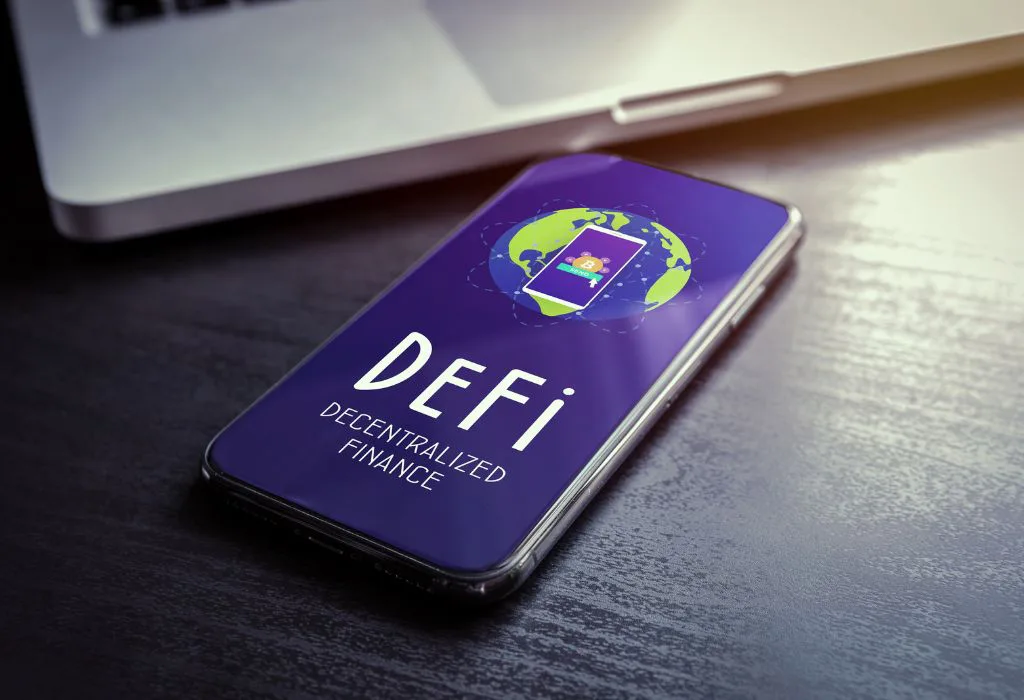Contents
ToggleThe world of finance is undergoing a significant transformation with the rise of decentralized finance (DeFi) platforms. These platforms, powered by blockchain technology, are revolutionizing the traditional banking system and offering a new paradigm for financial services. In this article, we will explore the disruptive potential of the DeFi revolution and its implications for the future of finance.
Introduction
The DeFi revolution refers to the rapid growth and adoption of decentralized finance platforms that are challenging the traditional banking system. DeFi platforms leverage blockchain technology to provide transparent, secure, and low-cost financial solutions to a global audience. With the ability to automate transactions, eliminate intermediaries, and democratize access to financial tools, DeFi is reshaping the way we think about finance.

Traditional Banking vs. Decentralized Finance
Traditional banking has been the backbone of the financial system for centuries, offering services such as lending, asset management, and payment processing. However, these institutions operate in centralized and closed environments, leading to inefficiencies, high costs, and limited accessibility. In contrast, DeFi platforms are built on decentralized blockchain networks, offering open, transparent, and secure financial services to anyone with an internet connection.
Suggest: Essential Steps for Startups to Create an Effective Marketing Plan
Accessibility and Democratization of Financial Services
One of the key advantages of DeFi platforms is their ability to democratize access to financial tools. Traditional banking often excludes individuals and businesses due to geographical limitations or strict regulations. DeFi platforms transcend these barriers and operate without geographical boundaries, providing financial services to underserved markets worldwide. This democratization of access empowers individuals and businesses, fostering financial inclusion and economic growth.
Affordability and Cost Reduction
Traditional banking systems are notorious for charging high fees for various services. These fees are often a result of intermediaries and operational inefficiencies. DeFi platforms, on the other hand, leverage smart contracts to automate processes, reducing the need for intermediaries and lowering costs. By eliminating unnecessary fees, DeFi platforms make financial services more affordable and accessible to a broader range of users.
Transparency and Security
One of the core features of blockchain technology is its transparency. In the DeFi ecosystem, all transactions are recorded on a public ledger, ensuring transparency and accountability. This increased level of transparency makes it harder for fraud or unauthorized operations to occur, instilling trust in users. The decentralized nature of DeFi platforms also adds an extra layer of security, as there is no single point of failure that can be exploited by malicious actors.
Innovation in Financial Services
DeFi platforms are at the forefront of financial innovation, offering a wide range of novel products and services. Traditional banks often struggle to keep up with the pace of technological advancements. In contrast, DeFi projects are continually pushing the boundaries of what is possible in finance. From decentralized lending platforms like Aave and Compound to the development of stablecoins like MakerDAO’s DAI, DeFi projects are driving innovation and shaping the future of finance.

Real-life Examples of DeFi Platforms
To better understand the impact of DeFi on the financial sector, let’s explore a few successful examples of DeFi platforms:
Uniswap: Decentralized Cryptocurrency Exchange
Unisap: Uniswap: Decentralized Cryptocurrency Exchange
Uniswap is a decentralized exchange (DEX) that allows users to trade cryptocurrencies without the need for a centralized intermediary. By eliminating the middleman, Uniswap enables faster, more secure, and less costly transactions. Users can directly interact with smart contracts on the Ethereum blockchain, ensuring transparency and efficiency.
Aave: Decentralized Lending Platform
Aave is a decentralized lending platform that connects borrowers and lenders without the need for a traditional financial institution. Through the use of smart contracts, Aave enables users to borrow and lend digital assets in a secure and transparent manner. The platform offers flexible interest rates and automated lending protocols, making borrowing and lending more accessible and affordable.
Compound: Decentralized Lending and Interest Platform
Similar to Aave, Compound is a decentralized lending platform that allows users to earn interest on their deposited funds. Users can supply their digital assets to the platform, which are then lent out to borrowers. The interest generated from these loans is distributed to the lenders, providing them with a passive income stream. Compound’s innovative approach incentivizes users to put their idle assets to work, revolutionizing traditional savings accounts.
MakerDAO: Decentralized Stablecoin Platform
MakerDAO has developed DAI, a decentralized stablecoin pegged to the US dollar. Stablecoins are cryptocurrencies designed to maintain a stable value, providing a reliable medium of exchange and store of value. DAI is created through a system of collateralized debt positions (CDPs) on the Ethereum blockchain. This stablecoin offers stability and reliability in the volatile cryptocurrency market, enhancing the efficiency of transactions and reducing price volatility.
These examples represent just a fraction of the broader DeFi ecosystem. As the industry continues to evolve, we can expect to see further innovations and advancements that will solidify the role of DeFi in reshaping the financial landscape.

Read more: A Comprehensive Guide to Web3 Marketing Strategies and Real-World Examples
The Future of DeFi and its Impact on Traditional Banking
The DeFi revolution is still in its early stages, but its potential impact on traditional banking is significant. As DeFi platforms continue to grow and mature, they have the potential to disrupt traditional banking services in several ways:
- Decentralization: DeFi platforms challenge the centralized nature of traditional banking by offering open and transparent financial services. This decentralization reduces the reliance on intermediaries and gives individuals more control over their finances.
- Lower Costs: DeFi platforms eliminate many of the traditional costs associated with banking, such as brick-and-mortar infrastructure and manual processes. By leveraging blockchain technology, DeFi platforms can provide financial services at a fraction of the cost, making them more affordable and accessible to a wider audience.
- Financial Inclusion: DeFi platforms have the power to reach the unbanked and underbanked populations worldwide. With internet access, individuals can participate in DeFi and access a wide range of financial services without the need for a traditional bank account.
- Innovation: DeFi platforms are driving innovation in the financial sector. The ability to programmatically execute transactions and create complex financial instruments on the blockchain opens up new possibilities for financial products and services that were previously unimaginable.
Traditional banks are not oblivious to the rise of DeFi. Some banks have started exploring partnerships and collaborations with DeFi projects to leverage the benefits of blockchain technology. However, the fundamental shift towards decentralization and disintermediation poses challenges for traditional banks, who must adapt to stay relevant in the rapidly evolving financial landscape.
Conclusion
The DeFi revolution is transforming the financial sector by introducing decentralized, transparent, and low-cost financial services. Through the use of blockchain technology, DeFi platforms are challenging the traditional banking system and democratizing access to financial tools and services. The disruptive potential of DeFi lies in its ability to offer affordable, secure, and innovative financial solutions to individuals and businesses worldwide.
As the DeFi ecosystem continues to evolve, it holds the promise of reshaping the financial landscape, providing financial inclusion, and driving financial innovation. Traditional banks and financial institutions must embrace the opportunities presented by DeFi or risk becoming obsolete in a world where decentralized finance is the new norm.

FAQs
1. How does DeFi democratize access to financial services?
DeFi platforms operate on decentralized blockchain networks, allowing anyone with an internet connection to access financial services. This removes geographical limitations and regulatory barriers, enabling individuals worldwide to participate in the global financial system.
2. What are the advantages of DeFi platforms over traditional banking?
DeFi platforms offer advantages such as lower costs, increased transparency, enhanced security, and the potential for financial innovation. By eliminating intermediaries and leveraging blockchain technology, DeFi platforms provide more affordable and accessible financial services.
3. How do DeFi platforms ensure transparency and security?
DeFi platforms utilize the transparency of blockchain technology, which records all transactions on a public ledger. This transparency enhances accountability and reduces the risk of fraud or unauthorized operations. Additionally, the decentralized nature of DeFi platforms adds an extra layer of security by eliminating single points of
Read more: Blockchain meets NFTs Discover the Digital Ownership Revolution












